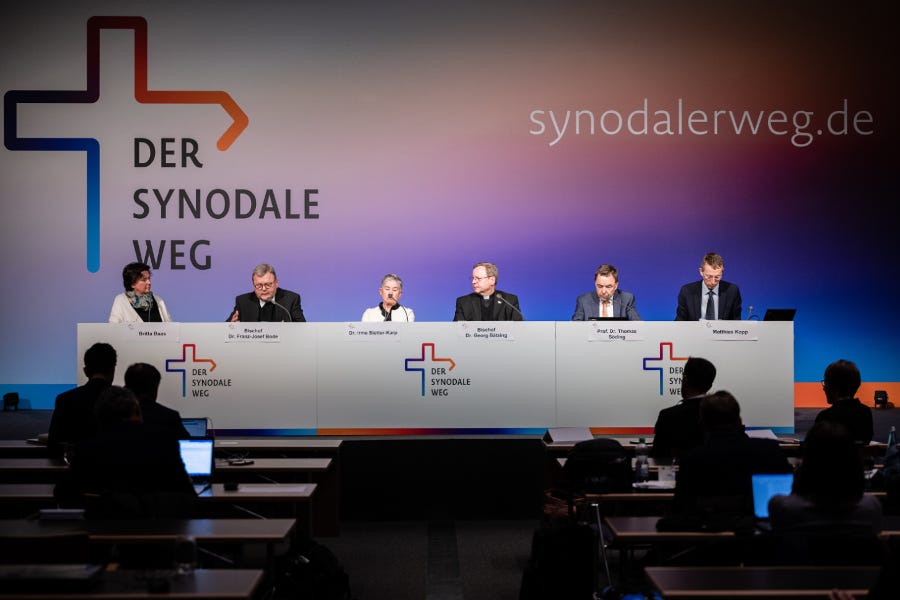New clash shows strains in Germany’s ‘synodal coalition’
German lay Catholics say bishops aren't taking synodality seriously enough
Germany’s influential lay Central Committee of German Catholics (ZdK) issued a stern warning Tuesday to the country’s bishops.

The ZdK, which co-sponsored Germany’s “synodal way,” accused the bishops …
